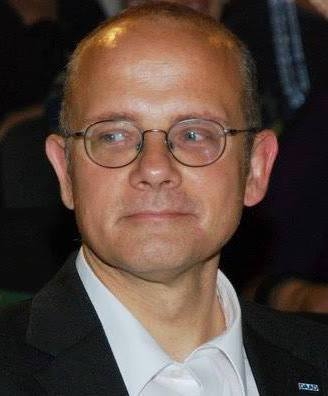In recent years, various forms of nationalism have become a part of everyday Russian political and social life. Since the end of the 1990s, an increasingly aggressive racist sub-culture has been infecting sections of Russia’s youth, and become the topic of numerous analyses by Russian and non-Russian observers. Several new radical right-wing organizations, like the Movement Against Illegal Emigration, known by its Russian acronym DPNI, have attracted extensive attention from domestic and foreign journalists, scholars and monitors. Parallel tendencies within Russian intellectual life, in contrast, have received less national and international notice although their repercussions can increasingly be felt in the political thinking and behavior of Moscow’s rulers. It is generally acknowledged that a shrill anti-Americanism, as well as various other phobias, characterize today not only marginal groups, but also the Russian mainstream. However, in many analyses, the sources of, and channels for, such tendencies in Russia's elite strata remain obscure.
Among the dozens of extremely anti-Western publicists and pundits present in Russian official and public life today, Aleksandr Dugin and his various followers stand out as a network of especially industrious political ideologues and activists who have managed to penetrate Russian governmental offices, mass media, civil society and academia. Dugin’s bizarre ideas have been analyzed in dozens of scholarly and journalistic texts (see the Suggested Reading at the end of this article). At the same time, instead of being treated as a political phenomenon, the Duginists are sometimes presented as peculiarly post-Soviet curiosities. Occasionally, they are used to illustrate the degree of Russia’s confusion after the collapse of its empire rather than perceived as engines of broader trends in contemporary Russian discourse that may be taken seriously. Dugin’s numerous links to the political and academic establishments of a number of post-Soviet countries, as well as of Serbia and Turkey, remain understudied or misrepresented. In other cases, Dugin and his followers receive more serious attention, yet are still portrayed as anachronistic, backward-looking imperialists – merely a particularly radical form of contemporary Russian anti-globalism. Many such assessments downplay the manifest neo-fascism of Dugin's bellicose ideology. Neither the stunning public appeal nor the grave political implications of Duginism are well-understood in Russia or the West today.
The Members of the Supreme Council of the International Eurasian Movement
A marginal conspiracy theorist in the 1990s, Dugin has, during the last 10 years, become a respected commentator and writer on contemporary world affairs, in general, and Russia’s foreign policy, in particular. This has happened in spite of his frank praise of the SS Ahnenerbe institute (Heritage of the Forefathers), enthusiastic prophecy of a Russian “fascist fascism,” and numerous similar statements during the early and mid-1990s. Dugin’s rise began in 1998 when then State Duma Speaker Gennadii Seleznëv, a leader of the Communist Party, appointed him as an advisor. Dugin’s unexpected appearance as an official employee of the presidium of the parliament’s lower house marked the radical rightist’s break-through from the lunatic fringe into the political establishment of the Russian Federation (RF). Since then, Dugin’s presence and weight in Russian political and academic life has grown, by the year.
Since its foundation as the Socio-Political Movement “Eurasia” in 2001, Dugin’s main organization, the Mezhdunarodnoe “Evraziiskoe dvizhenie” (MED; International Eurasian Movement), has included a number of high-ranking government officials, such as:
· former RF Minister of Culture Aleksandr Sokolov,
· Chairman of the Federation Council’s Committee on International Relations Mikhail Margelov,
· former advisor to President Yeltsin and RF Ambassador to Denmark Dmitrii Riurikov,
· Head of the RF Ministry of Justice Department on Political Parties and Social Organizations Aleksei Zhafiarov, and others.
While these figures are today no longer listed on the MED’s website (http://evrazia.info/), and may have cut their ties with Dugin, the MED still boasts a number of prominent personalities as members of its Supreme Council. They included in early April 2009:
· Federation Council Vice-Speaker Aleksandr Torshin,
· Presidential advisor Aslambek Aslakhanov,
Next Page 1 | 2 | 3 | 4 | 5 | 6
(Note: You can view every article as one long page if you sign up as an Advocate Member, or higher).





